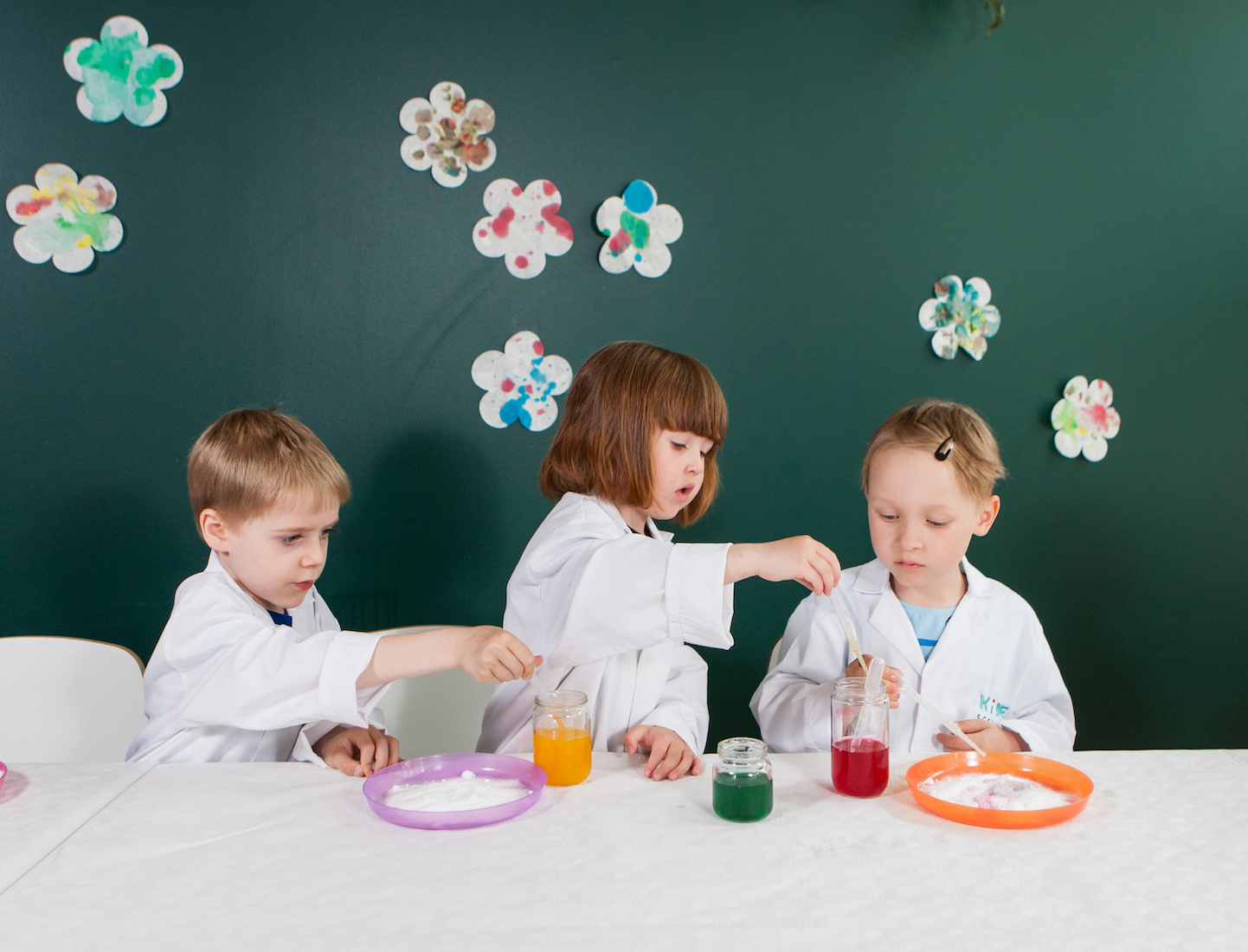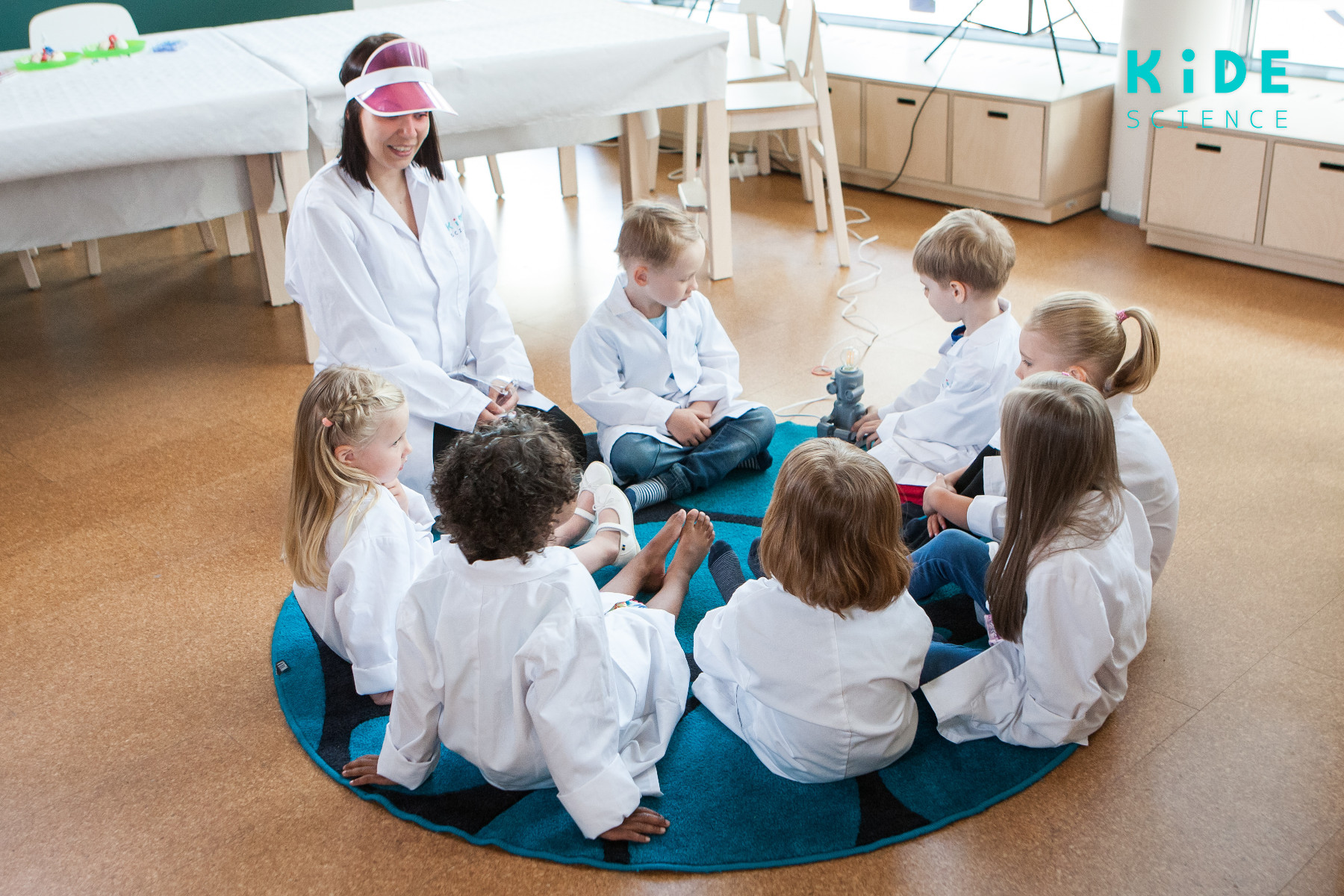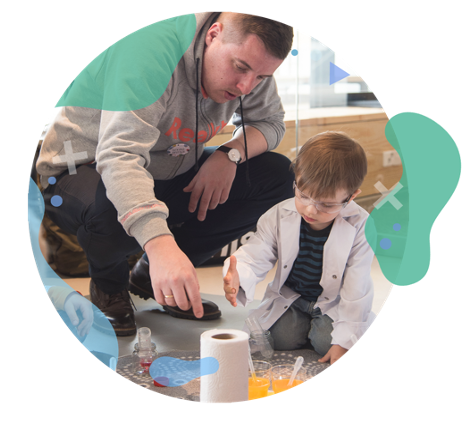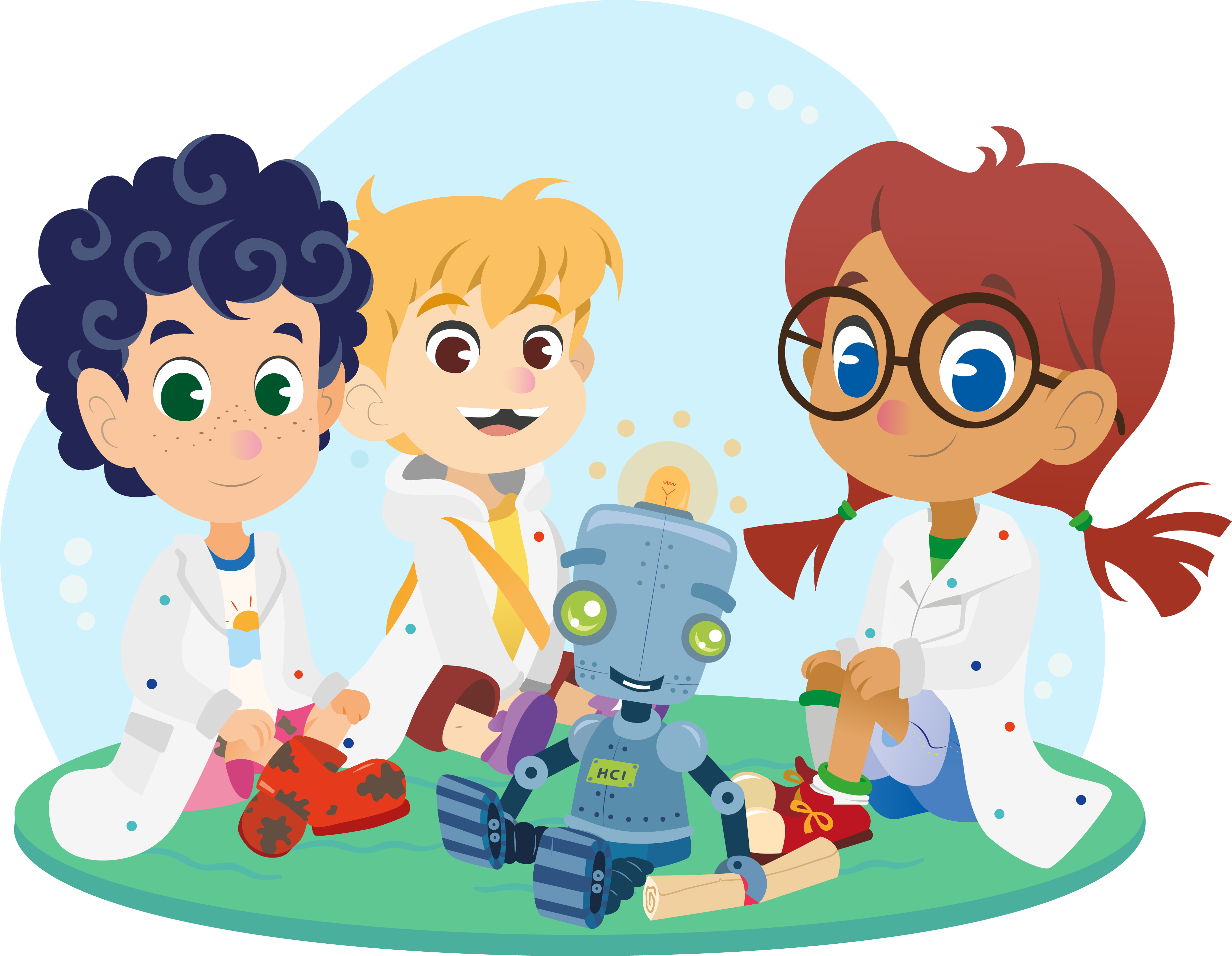How to Adjust for Different Science Abilities in Your Class
When classes have mixed learning abilities, it's crucial to find ways to keep things challenging and engaging for everyone. Find out how, here.

Other Episodes
10-Part Teacher Training Series
In our 10-part series of teacher training, we will walk you through the topics and practicalities including transitions in Kide Lessons, pedagogical tips, questions, assessment, storytelling, children’s agency & preparation, drama approach, group management, adult’s role & home experiment, and scientific arguments behind the Kide-approach.
Video Transcript
Hi there.
Nice to see you again. As you might have noticed in our lesson plans, we have pedagogical tips from Level One to Level Three. In this video, we're going to take a look at how to approach science activities with children of different skill levels.
So the age group in Kide Science lessons is from three to eight-year-olds, and that is actually quite a wide range. The skills of a three-year-old are on a quite a different level than the skills of an eight-year-old, right? Some might even say that they are from completely different worlds. You might think that how on Earth is it even possible to use the same lesson plans with both age groups?
But with Kide lessons, it is possible. You just have to approach the activities from a slightly different angle depending on the skill levels of the children. And because Kide lessons and the pedagogy behind us is based on skills, this is possible. We could, for example, have an experiment where we practice measuring with a pipette. Or think about the chemical reaction between baking soda and vinegar. And both of these experiments can be very motivating for both three-year-olds and the eight-year-olds. And now we're going to give you some examples to show you how this might happen.
Usually, we're going to give these tips on the lesson plans in the section, Pedagogical Tips. So don't worry, you won't be left alone with this. With the youngest scientists, fine motor skills often need a lot of practice.
So with Level One children, pipetting for example, is about setting the very base for measuring skills. And for these young scientists, the pipette itself can be quite exciting and interesting. You can start the experiment by wondering about this strange measuring tool, thinking about how it could be used.
Well, after wondering for a while, you can guide the children and tell them how to use this strange equipment step-by-step. Okay, so this is the pipette and the sharp end goes into the liquid.
Then you need to press your fingers together and release.
Look what happens now.
You can take the pipette of the liquid and very carefully press. Droplets! That's right.
Well, the younger scientists will probably need adult guidance to learn how to do this and remember to take time for the basic things and try to contain yourself from hurrying to the next thing. Just the pipetting can be very motivating with the little ones, especially. The scientists at Level Two probably catch quite quickly how to use the pipette. So with these scientists, you can take learning the measuring a bit further. So with them, you can, for instance, think about counting the droplets, or the pipettefuls... and learn to adjust how softly you press the pipette or how hard.
Okay. These scientists are probably quite skillful with their fine motorics already, so you can start practicing more and more precise measuring with them, and you can also start marking down the results in numbers. On top of this, you can also start making estimations and start paying attention to the scale on the side of the pipette.
- How could we feel only half of the pipette?
- Or, how many pipettefuls would it take to fill this container?
When observing the reaction with the little ones, we are once again setting the basis for learning skills.
In this case, we set the base for making observations. So what information can we collect from our surroundings through using all our senses? So with children in Level one, it's all about just learning about our senses.
- What do we see?
- What do we smell?
- What do we hear?
- What do we feel?
So when making observations, it's also always about communicating to others what we just sensed.
Little children might not yet have the linguistic skills to verbally describe what they observing. So that's why it's very important that the adult shows an example on how to communicate.
So after asking the child, What do you see? What do you hear? And of course, giving them time to produce whatever they will, you can then verbalize it yourself as well. Yes, I can see bubbles as well, and I can hear it sing just like a snake, and you can even mimic the sound together.
Yeah. The most important thing, however, is to enjoy this exciting experience. The positive emotions connected to science are the powerful ingredient that set the basis for developing interest and for lifelong learning. Sometimes, and quite often the enjoyment is enough, especially when we talk about the youngest children. The verbal skills of Level Two scientists are often a bit more further developed, so you can challenge these scientists a little bit more to describe their observations. So just give them time and space to describe what they hear or see. You can also direct the attention to the core concepts of these experiments, like here the concept of a chemical reaction.
You can do this together by wondering:
- Where do the bubbles come from and where are they going?
- What might be inside the bubbles?
The child might say something like, When we put baking soda and vinegar together, we see bubbles.
And that answer is great, and it meets the goals of this experiment. It is also good for the vocabulary that adults use. The right and the correct words for these concepts, such as, Here, the gas is formed in the chemical reaction between vinegar and baking soda. However, this does not mean that the children have to remember these new words at once.
You can challenge these scientists to describe their observations in more depth and from different angles.
You can also practice reporting the results down in writing or drawing. Because many of these children, they might already have some basic idea about science. So give them time and space to verbalize their thoughts and their observations about chemical reactions. You can also go a bit deeper with the concepts with the baking so that vinegar experiments. For example, you can introduce the name of the gas, carbon dioxide, or even the chemical formula, CO2.
It's good to remember that the skill levels are not strictly bound at the age of the children because children develop in different places, even though most of the three to 4 year old, for example, would have the skills that are described in the Level one Pedagogical Tips. The same children could be at Level two for some other skills. For example, for example, Maria, four years old, could be very, very advanced in fine motorics but still not have the verbal skills to describe what they feel or hear.
That's why it's really good to be flexible with the levels of the pedagogical tips and reading them in advance will give you tips on how to adjust the level of challenge depending on the needs of the children. This way, you can take some of the Level Three tips and provide a challenge for those who seem to need it and take some of the Level One tips to make the task a little bit easier for those who seem to struggle.
So now we have just a little task for you. Look at the Pedagogical tips of the next lesson you're about to have and think about your group of children. Which level do you think they'll fit? And after the lesson, have another look and really think, were you right? Or are there some adjustments you could make? Thank you for joining us again. See you soon. Bye-bye.
Start your free trial of Kide Science to get story-based lesson plans for teachers.
Related articles
To have a structure and routines that are always remaining the same will help the child to...
How can you use other adults (like parents) in Kide Science lessons to help further improve the...
Our pedagogy might not be what parents are used to. Here's how you can explain teaching concepts...



